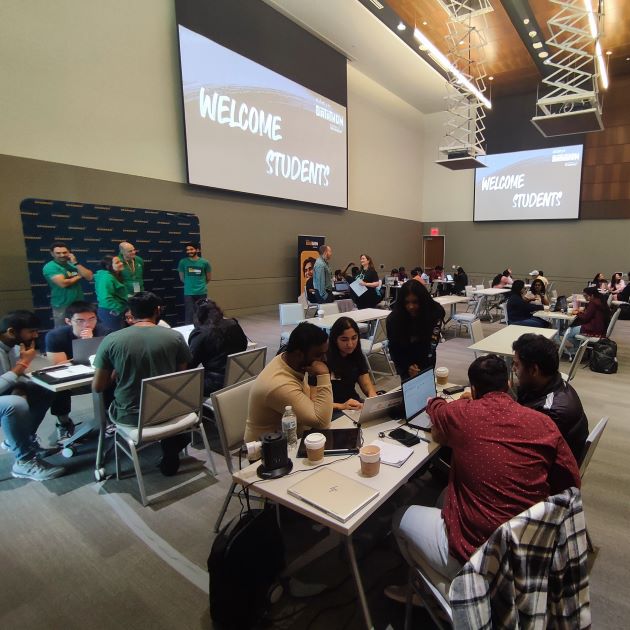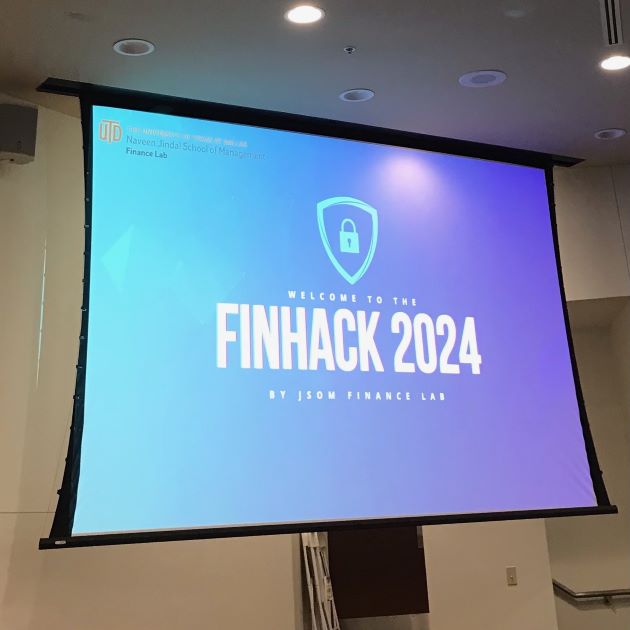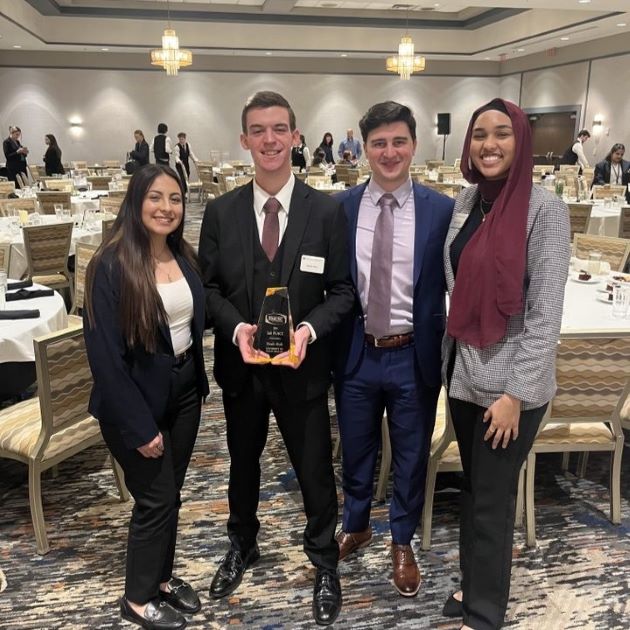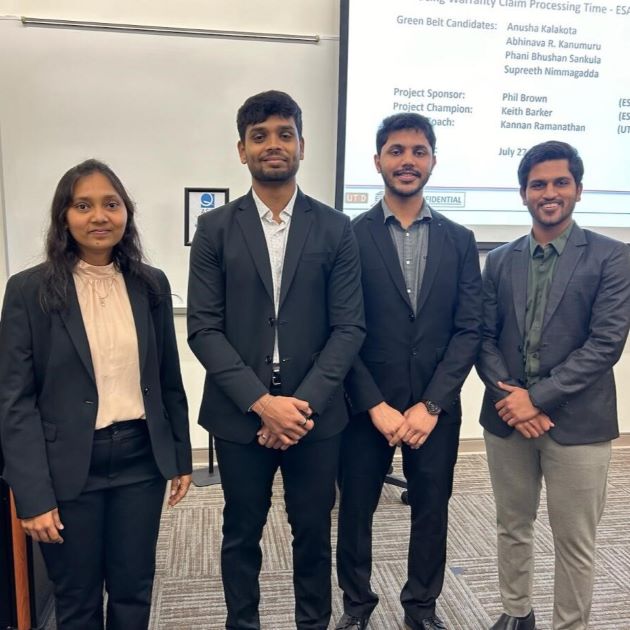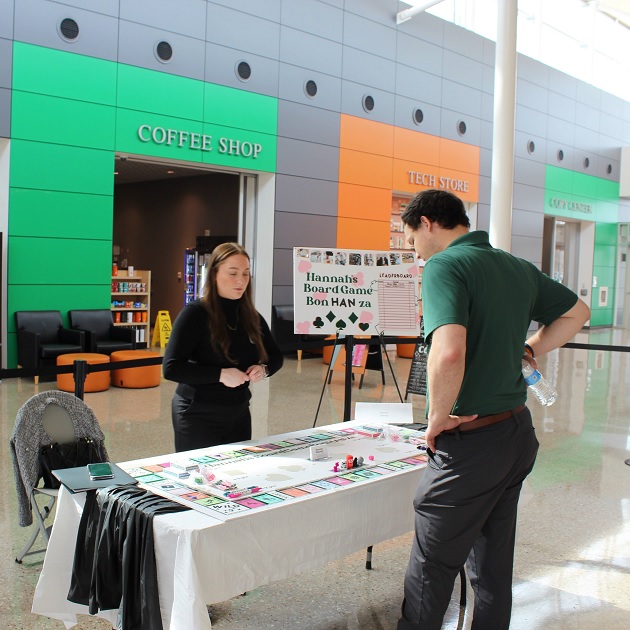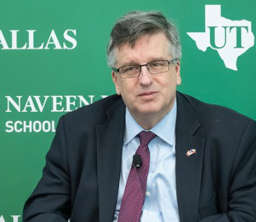
As long as trade wars continue to rage, the global market will suffer, according to Douglas George, one of dozens of speakers at the Fourth Annual Global Strategy and Emerging Markets Conference held at the Naveen Jindal School of Management May 8 to 10.
“It’s time for the U.S. to remove tariffs and get back to having free trade among free countries for our mutual prosperity,” said George, the acting consul general of Canada to the South Central United States.
He was just one of more than 100 diplomats, scholars, students and practitioners who gathered from around the world for wide-ranging discussions on the global marketplace.
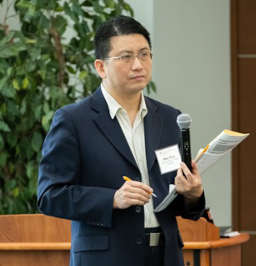
Co-sponsored by Cornell University, Northeastern University and the University of Miami, the conference was chaired by Dr. Mike Peng, O.P. Jindal Distinguished Chair and executive director of the Jindal School’s Center for Global Business. Moreover, the Jack and Ann Graves Charitable Foundation in Dallas and the Society for the Advancement of Management Studies, in Durham, England, provided additional funding. The City of Richardson, Texas, Consulate General of Canada, Altair Global, Group Lamerica, Haynes and Boone, Ministry of Foreign Affairs of Mexico and Brewster Waddell provided additional support.
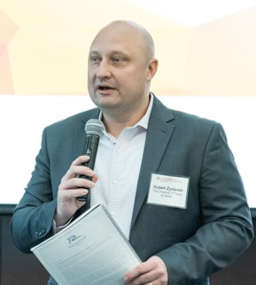
“The conference is an important part of our university’s strategy to build, grow and share knowledge about economies and businesses around the world,” said Hubert Zydorek, director of the Center for Global Business and director of the Bachelor of Science in Global Business and Master of Science in International Management Studies degree programs. “It’s great to hear from such a tremendous number of people from so many different countries.”
Conference-goers came from five continents to hear and discuss topics ranging from corruption to eco-friendly competition to what is going on in Brazil, India, Poland and Russia, among other countries.
Zydorek’s opening remarks were followed by a heated panel discussion about the North American Free Trade Agreement (NAFTA) and the United States-Mexico-Canada Agreement (USMCA), a proposed pact that has yet to be ratified by the three countries. NAFTA turned 25 this year, but its future is in question, and some experts called USMCA “NAFTA 2.0.”
Javier Mazón, a senior executive who helps U.S. companies in Latin America, expressed concern that USMCA is in danger of stalling on Capitol Hill and elsewhere.
“The time we’re taking to finalize the agreement affects the region’s ability to compete on a global basis. I’m worried we’re losing our advantage,” says Mazón, president and founder of Group Lamerica LLC.
Several speakers said President Donald Trump’s tariffs on steel and aluminum have created bad blood around the world. George referred to a comment by Trump’s trade assistant Peter Navarro that “there’s a special place in hell” for Justin Trudeau, after the Canadian prime minister complained about U.S. tariffs.
“Canada and the U.S. have been close trade partners since before World War I … a comment like that is absurd, which is also a word I’ve heard to describe the tariffs,” said George.
International attorney Larry Pascal said the importance of free trade between the U.S., Mexico and Canada goes far beyond dollars and cents.
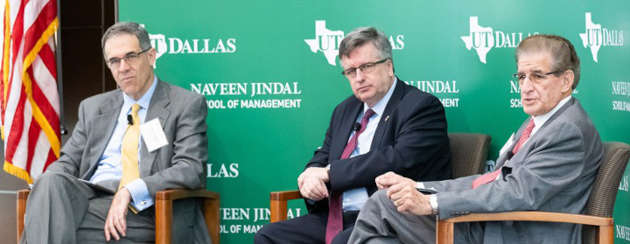
“Trilateral trade is super important on a social, cultural, individual and corporate level — it’s not purely economical,” said Pascal, chair of the Americas Practice Group and co-chair of the International Practice Group for Haynes and Boone.
Dr. Mike Peng introduced the NAFTA/USMCA panel. He said the collapse of NAFTA would have a negative effect on jobs and economic growth around the U.S., but especially in Texas.
Thanks to its location, the Center for Global Business is uniquely positioned to provide a strong voice in the debate, Peng said.
“If you go north 1,300 miles, you’ll reach Toronto, and if you go south about 1,300 miles, you’ll reach Mexico City: We’re in the exact center of the NAFTA trade world,” he said.
During a Q&A session, panelists talked about topics ranging from climate change to the political crisis in Venezuela. Mazón said that country’s upheaval underscores the need for U.S. businesses to be extra cautious when entering any foreign market.
“No matter how smart you are, you first have to go into the country, learn about it and understand the risks. You have to have an up-to-date exit plan,” Mazón said.
On the issue of climate change, George said Canada is leading by example in its quest for a “clean-growth economy around the world.” But he expressed dismay that melting ice in the Northwest Passage has triggered new debate over who controls waters that offer a potential shipping shortcut between Europe and China.
U.S. Secretary of State Mike Pompeo recently called Canada’s claim to the Northwest Passage “illegitimate,” a statement George rejected. “We’ll have to agree to disagree,” he said.
Audience members quizzed panelists on what future research they want to see on global trade.
George suggested a short-term study looking at steel and aluminum tariffs to see if countries can actually “win” a trade war.
Pascal said researchers should study the impact of Canada’s “superior network of free trade agreements around the world.” He also suggested research on ways NAFTA countries can create new opportunities for citizens and businesses who are struggling. “We do a good job at innovation, but it’s important to see how we can do a better job at re-distributing the wealth,” Pascal said. “That old notion that everyone can pull themselves up by the bootstraps is a cultural myth.”
Conference-goers said the variety of panels and top-rate experts made the event well worth attending.
“You normally only see speakers and experts like these on paper, not in person,” said Julio-Martinez-Suarez, an associate lecturer at Tecnológico de Monterrey who was seeking feedback on his research paper. “This conference is an enormous opportunity to have face-to-face interactions and learn about emerging markets firsthand.”

